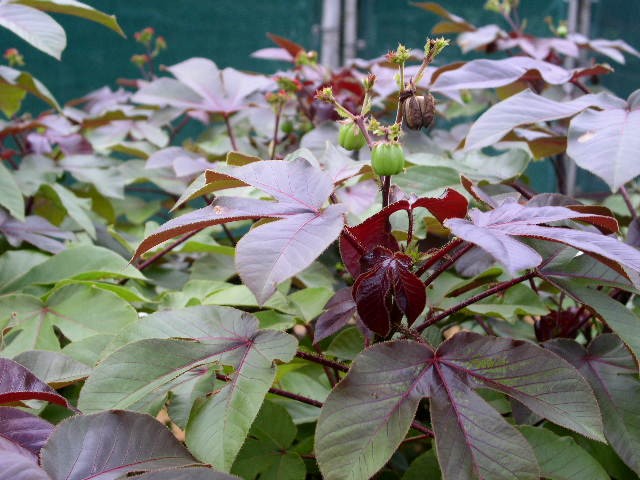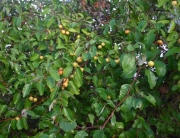Bellyache bush (Jatropha gossypiifolia L.) is one of the most toxic and aggressive weeds in the dry tropics of north Queensland. Three seeds could kill a child and dense infestations interfere with pasture growth, obscure fence lines, impede mustering, harbour feral animals, poison livestock, destroy natural landscapes, affect recreational use of natural areas and displace native vegetation. Consequently, its economic, environmental and social impacts go deep into the fabric of life. It has the potential to reduce biodiversity to nil.
Bellyache bush is native to Central America in the drier islands of the Caribbean and the Venezuelan coastline. It has been introduced as an ornamental and medicinal plant to many other tropical countries where it has since become naturalised. It is an erect, monoecious, soft-wooded, deciduous, perennial shrub growing to an average height of 2.5 m but exceeding 4 m in some areas. It is capable of reaching reproductive maturity within 55 days after germination. Flowering and seed production can occur all year round, and plants can produce up to 12 000 seeds per year. Bellyache bush predominantly infests riparian habitats but can also spread into open pastures and rocky areas in regions where rainfall ranges between 200 – 1500 mm per year.
Several biotypes with morphological, phenological, and physiological differences exist in Australia. These include Katherine Green, Queensland Bronze, Queensland Green, Darwin Purple, and Queensland Purple. The predominant biotype in Queensland is the Queensland Bronze whereas Katherine Green is the predominant biotype of the Northern territory.
Individual bellyache bush plants are easy to kill with conventional control techniques such as herbicides, machinery and fire. However, singular treatment of these methods can generate large-scale seedling recruitment the following year. Integrated control methods have the potential to reduce infestations to an acceptable level within four years.
To know more about Bellyache bush (Jatropha gossypiifolia L.) contact Dr Bebawi here.








